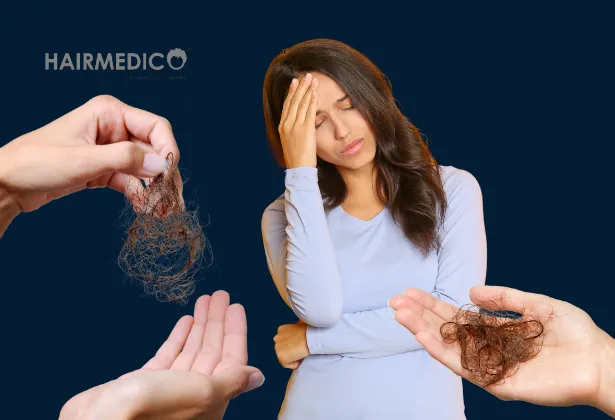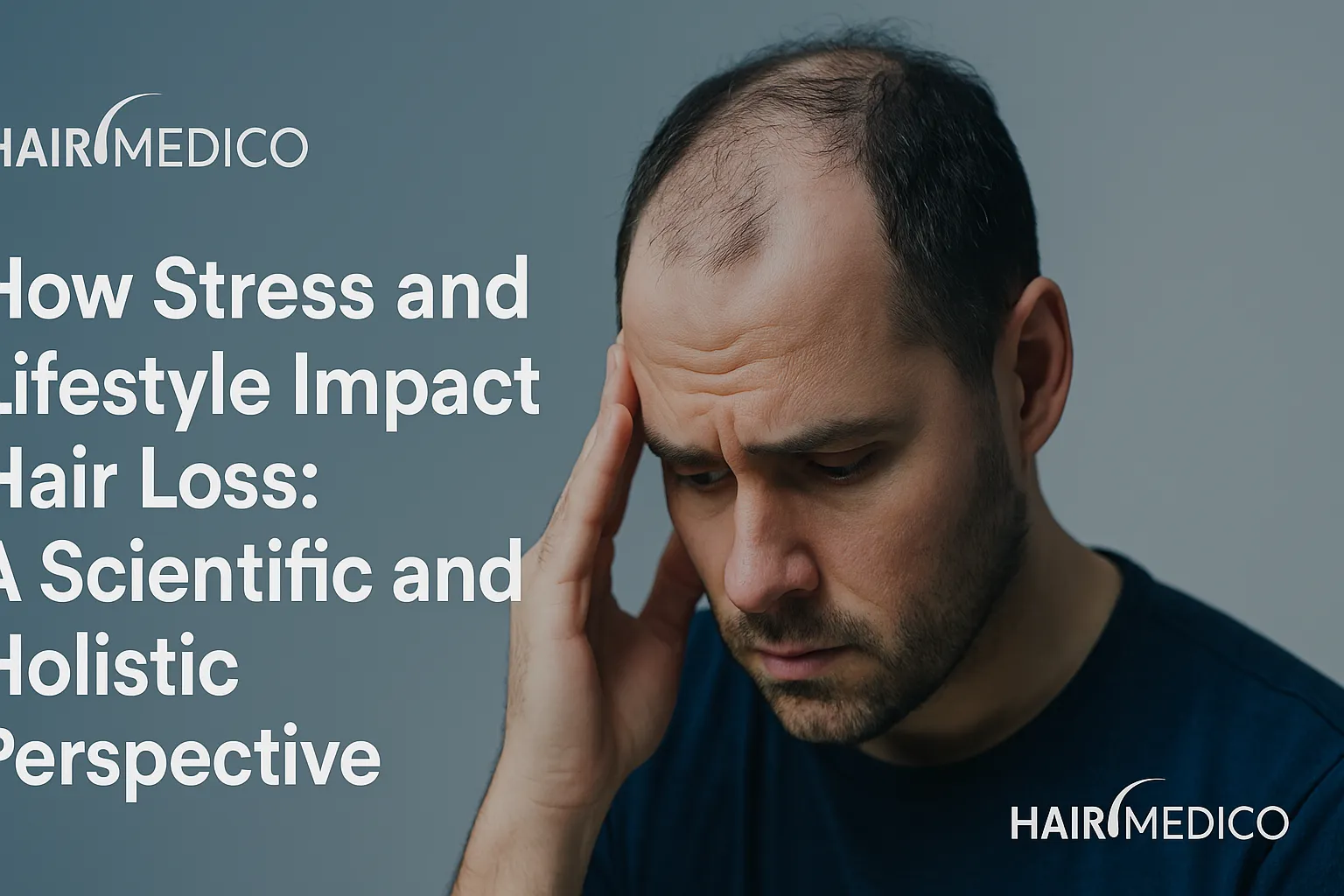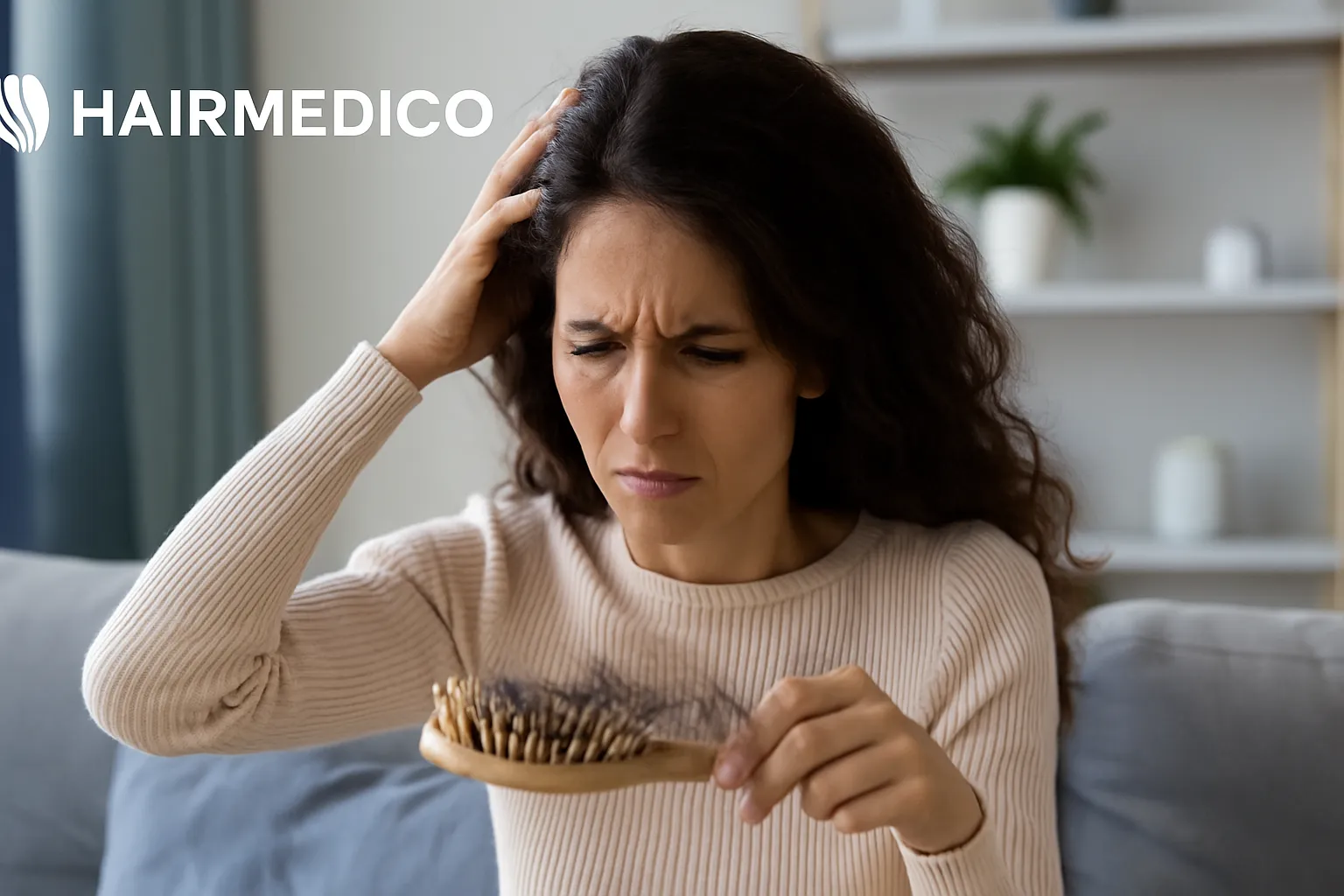
La pérdida de cabello afecta a millones de hombres y mujeres en todo el mundo, y no siempre se debe a factores genéticos. En 2025, dermatólogos, tricólogos y expertos en bienestar coinciden: el estrés crónico y los hábitos de vida poco saludables están entre los desencadenantes más subestimados del adelgazamiento capilar y la alopecia.
Desde el impacto emocional hasta una dieta inadecuada, exposición a toxinas, falta de sueño o incluso el exceso de ejercicio, el cuerpo responde de manera que interrumpe el ciclo natural del cabello. Este artículo explora la conexión científica entre el estilo de vida y la pérdida de cabello, así como estrategias holísticas y probadas para prevenirlo o revertirlo.
Antes de identificar los desencadenantes del estilo de vida, es fundamental comprender cómo crece el cabello:
Anágeno (fase de crecimiento): dura entre 2 y 7 años; el cabello crece activamente.
Catágeno (fase de transición): aproximadamente 2 semanas; el folículo se contrae y el crecimiento se ralentiza.
Telógeno (fase de reposo): alrededor de 3 meses; el cabello está inactivo antes de caer.
Exógeno (fase de caída): el cabello muerto se desprende mientras uno nuevo empuja.
La pérdida de cabello ocurre cuando este ciclo se ve alterado: o se acorta la fase de crecimiento o demasiados cabellos entran prematuramente en la fase de caída.
Los niveles elevados de estrés (impacto emocional, trauma, enfermedad, cirugía) pueden hacer que numerosos folículos entren prematuramente en la fase telógena. Esto provoca una caída difusa del cabello, generalmente entre 2 a 3 meses después del evento estresante.
El estrés aumenta la producción de cortisol, lo cual afecta indirectamente los niveles de andrógenos (como la DHT), una hormona vinculada con la miniaturización de los folículos, especialmente en hombres.
El estrés crónico genera inflamación sistémica y constriñe los vasos sanguíneos del cuero cabelludo, reduciendo el suministro de oxígeno y nutrientes a las raíces del cabello.
En algunos casos, el estrés contribuye a trastornos autoinmunes como la alopecia areata, donde el cuerpo ataca erróneamente sus propios folículos capilares.
Control del Estrés
Practica técnicas de relajación (meditación, respiración consciente, yoga).
Busca apoyo social o profesional si atraviesas procesos difíciles.
Mejora de la Alimentación
Incorpora proteínas magras, ácidos grasos omega‑3, hierro, zinc y biotina.
Reduce azúcares refinados y alimentos ultra‑procesados.
Mejor Calidad de Sueño
Prioriza 7‑9 horas de sueño reparador.
Establece horarios regulares y ambientes propicios para descansar.
Equilibrio en la Actividad Física
Mantén ejercicio moderado y constante.
Evita el exceso que pueda generar estrés corporal adicional.
Detección Temprana de Problemas Médicos
Consulta con dermatólogos o tricólogos si existe pérdida acelerada.
Realiza pruebas para detectar desequilibrios hormonales o deficiencias nutricionales.
Apoyo Profesional
En casos persistentes o graves, un tratamiento capilar profesional (como PRP o trasplantes) podría ser necesario.
En 2025, el vínculo entre nuestras elecciones de vida y la salud del cabello es más claro que nunca. Identificar y tratar los factores del estilo de vida es una estrategia eficaz para prevenir o frenar la pérdida de cabello. Al combinar un enfoque holístico con intervenciones médicas adecuadas, puedes mantener un cabello fuerte, sano y con una apariencia juvenil.


La falta de sueño aumenta el cortisol, disminuye la melatonina (un antioxidante protector para los folículos) y altera el ciclo natural de reparación del cabello.
Uno de los factores más subestimados que causan pérdida de cabello es la falta de nutrientes esenciales para el buen funcionamiento de los folículos. Si tu alimentación carece de lo siguiente, el crecimiento se ralentiza y aumenta la rotura o caída:
Hierro: transporta oxígeno a las raíces. Su carencia provoca adelgazamiento difuso.
Zinc: ayuda en la reparación celular. Su falta debilita el tallo capilar.
Vitamina D: modula los ciclos de crecimiento. Su deficiencia se relaciona con alopecia areata.
Biotina: ayuda a producir queratina. Su carencia hace el cabello frágil.
Proteína: el bloque principal del cabello. Si es baja, el crecimiento es débil.
👉 Para pautas nutricionales postoperatorias, consulta la Guía Postoperatoria de Hairmedico.
La nicotina restringe el flujo sanguíneo al cuero cabelludo.
El alcohol agota el zinc y las vitaminas B necesarias para la salud del folículo.
La pérdida severa de peso priva al cuerpo de nutrientes. Este redistribuye recursos a órganos vitales, deteniendo funciones no esenciales como la producción de cabello.
El sobreentrenamiento hace que aumenten los niveles de cortisol y el estrés oxidativo, provocando desequilibrios hormonales.
Metales pesados, radiación UV y productos químicos industriales pueden dañar el cuero cabelludo y el ADN de los folículos capilares.
Adelgazamiento repentino y difuso (no solo en la coronilla)
Cabello en almohadas o desagüe de la ducha
Enfermedad reciente, cambios de dieta o traumas emocionales
Uñas quebradizas, fatiga o piel apagada (signos de deficiencias)
Controla el Estrés
Meditación mindful (10–20 min diarios)
Técnicas de respiración
Yoga, tai chi o movimiento suave
Terapia cognitivo-conductual (TCC) si la ansiedad es crónica
Mejora el Sueño
7–9 h de sueño de calidad
Horarios de descanso regulares
Evita pantallas y cafeína antes de dormir
Restauración Nutricional
Suplementos: biotina, zinc, hierro, vitamina D3
Ácidos grasos omega 3 para controlar inflamación
Dieta completa: proteínas, verduras, legumbres y grasas saludables
Cuidado del Cuero Cabelludo y Flujo Sanguíneo
Microneedling (bajo supervisión profesional)
Champús con cafeína
Aceites de romero o menta
Masajes suaves diarios (~5 min)
Apoyo Médico
Terapia PRP
Mesoterapia con cócteles multivitamínicos
Análisis de cabello y pruebas de sangre (hierro, ferritina, B12, vitamina D)
Consulta con tricólogo o dermatólogo
En Hairmedico sabemos que la pérdida de cabello refleja el equilibrio general del cuerpo, no solo un tema estético. Con más de 17 años de experiencia global, el Dr. Arslan Musbeh y su equipo aplican un enfoque multidisciplinar:
Consultas personalizadas
Evaluación nutricional
Coaching para manejo del estrés
PRP y mesoterapia para recuperación regenerativa
Técnica Algorithmic FUE™ para restauración natural
Explora nuestro protocolo completo postoperatorio en la Guía Post-Operación de Hairmedico.
Galería de Antes y Después
Trasplante Capilar para Mujeres
Plan de Recuperación Postoperatoria
Precios de Trasplante Capilar
Detalles del Trasplante de Barba
Your consultant is ready to answer your hair transplant questions, and you can also get a personalized online hair analysis.